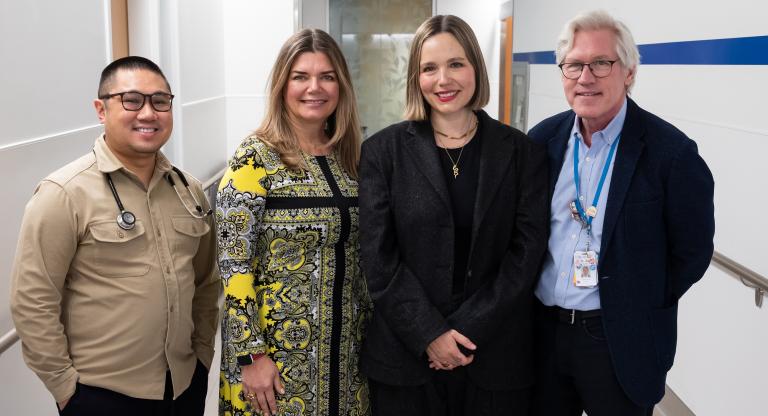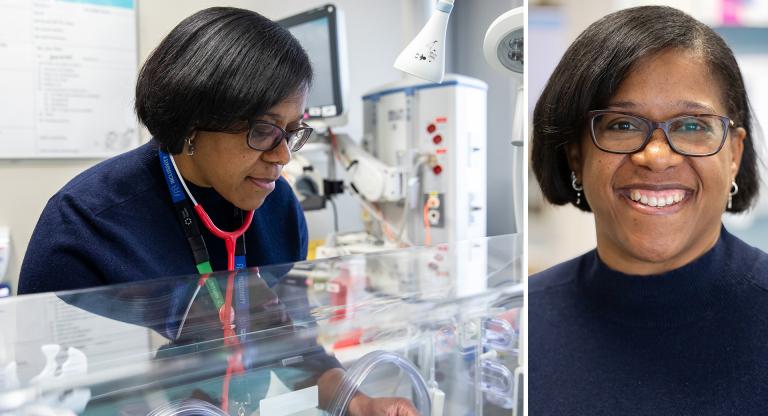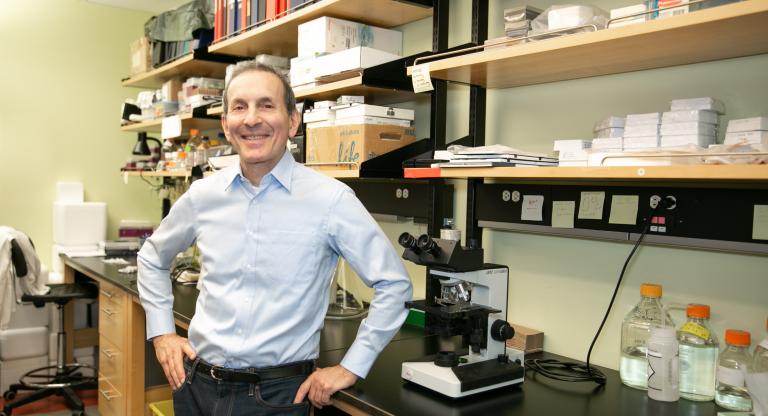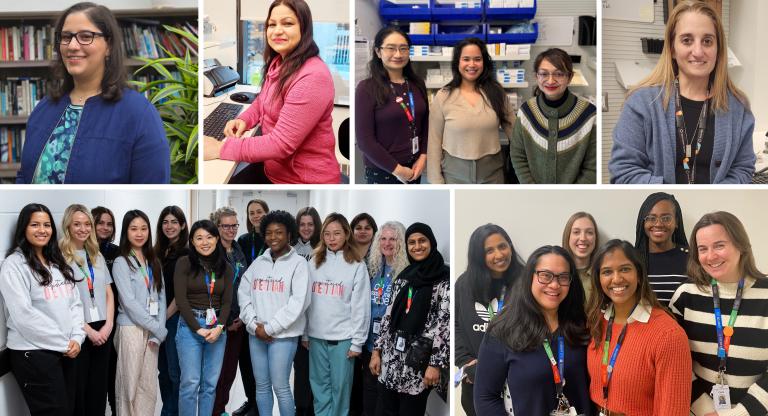Here’s how you can protect your baby from RSV
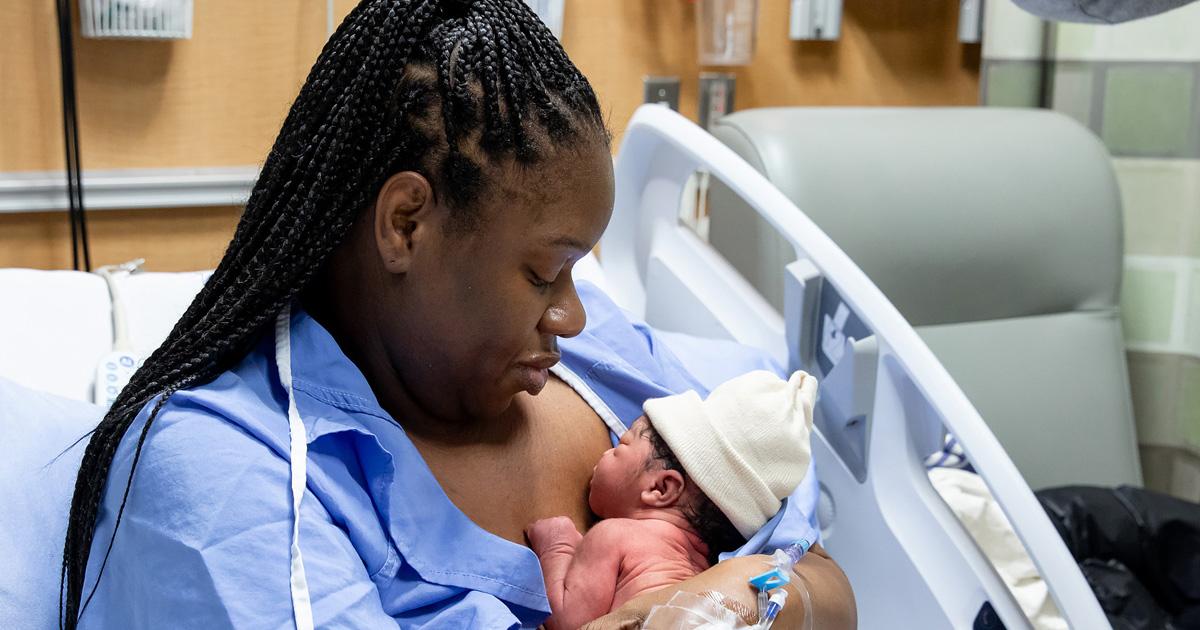
A new medication preventing severe Respiratory Syncytial Virus (RSV) illness is now available to eligible infants born at Mount Sinai Hospital.
RSV is a common virus that occurs most often between November and April (RSV season). It is so common that most children will be infected with RSV before they are three years old.
For most healthy children and adults, it causes mild, cold-like symptoms. But while families with small children are likely not strangers to frequent illnesses, such as the common cold, circulating through their household, RSV can be more serious for some infants and children.
Premature babies, infants under six months of age, and children with chronic medical conditions are at higher risk for developing serious complications, like bronchiolitis or pneumonia, which may require hospitalization.
The virus spreads easily from person to person, through droplets released into the air when an infected person coughs or sneezes, or by touching a contaminated surface.
How to protect your baby
There are two options available to protect babies from severe RSV illness.
The first is with a new RSV immunization, which is given to infants during the RSV season as a single injection (needle), often in the thigh muscle. This is not a vaccine; it is a safe and effective medication that gives babies antibodies to provide six months of protection from RSV.
“Severe RSV infection which requires hospitalization can affect any infant, not only those with chronic medical problems,” says Dr. Yenge Diambomba, staff neonatologist and co-chair of the Women’s and Infant’s Health RSV prevention working group at Mount Sinai Hospital.
The Canadian National Advisory Committee on Immunization (NACI) recommends this option to protect infants against serious RSV illness and the need for hospitalization during the winter months. The availability of this medication is part of an expansion to the publicly-funded RSV prevention program.
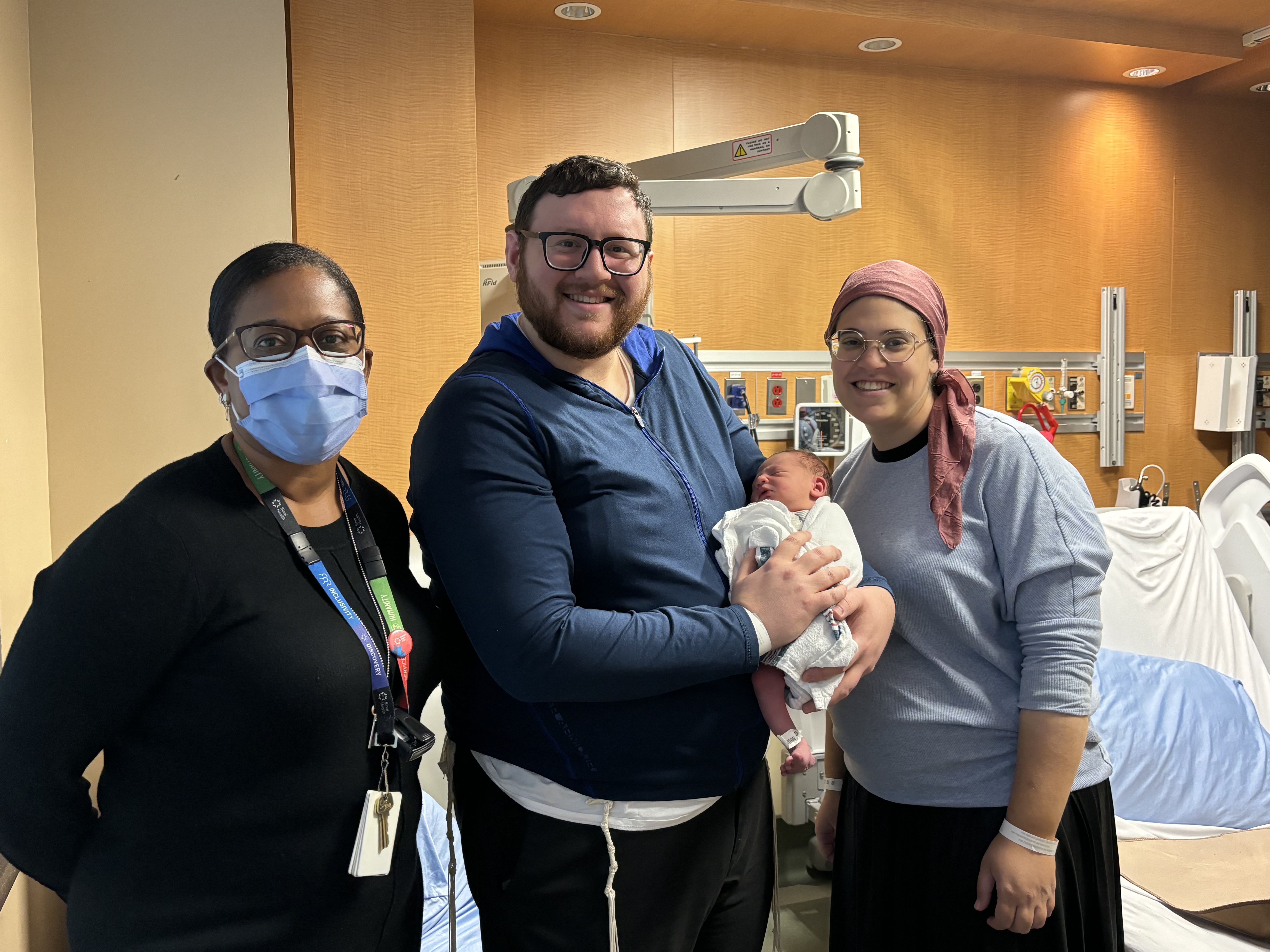
“We have heard about babies getting very sick from RSV, so we were happy to be the first family at Mount Sinai Hospital offered this medication,” says Shoshana, whose newborn baby was offered the injection before leaving the hospital.
Alternatively, pregnant women can choose to have an RSV vaccine between 32 and 36 weeks of pregnancy to protect their unborn babies from severe RSV illness. This vaccine will continue to protect infants after they are born.
Only one of these options is necessary to protect against RSV unless you are otherwise advised by your health-care provider.
Learn more about the RSV immunization for infants, from the Provincial Council for Maternal and Child Health.
Learn more about RSV.









